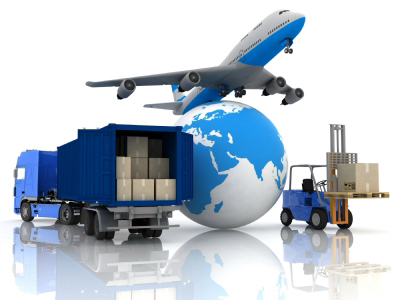Not long ago the national expansion of retail companies was measured by the number of stores a company had and not all brands could afford to expand.
Going overseas was restricted to the lucky ones. Only big brands, who could afford international advertisement, were able to form a franchise or invest overseas, which is why many brands were not known from one country to another.
As a foreigner myself, I was amazed that when I travelled I could buy brands that were different from the ones I had in my country.
Now it’s not even necessary to get on a plane to buy internationally. You just need to get your laptop, surf the net, and you can travel as far as you want.
E-commerce is booming and online sales have become an important part of most companies’ revenue and the popularity of online shopping is still increasing. Most retail companies have adapted their sites to include the latest e-commerce shopping solutions and implemented new technologies which will allow them to maximise their online revenue.
But it’s still not as easy as it seems. It’s not just a matter of putting a multilingual site live and waiting for users to buy. The products still have to be shown around so that people know about them.
How to capitalise on brand awareness
The part of brand awareness that doesn’t come from TV adverts, starts from displaying the brand and its products in Affiliate sites, Comparison Shopping Engines, Paid Search ads, Retargeting Ads etc.
As a brand, to be able to see your products displayed everywhere, you need to have a good knowledge of each market – which are the right partners to work with? What is the maturity of the market? Which is the right audience to target?
The shopping experience itself is also essential. If the user journey is good, a big part of the transaction is done and the customer will go away satisfied. Although product data is essential in this process, this data can be transformed, changed, matched, customised and integrated.
Data technology + market knowledge = global reach. Well, possibly, but there is something essential missing in this equation – budget.
Companies need a lot of support in this process of expansion – knowledge and technology are key. There’s still the importance of investment to be considered as not all companies can afford to expand without considering a good ecommerce platform, production capacity, shipping overseas etc. By having a proper structure 50% of the expansion is easily achievable.
A company can have great products, a great image and great deals, but if no one can see them, the number of transactions won’t increase enough to cover the investment.
The key to successful international expansion
Being known in the online world is directly related to the distribution of your products and data. You need to make sure you get the right partners; you need to use third parties who can assist and consult with you when you need to take a decision.
Budgets need to be closely monitored and you need to make sure your money is not spent carelessly. If your investment doesn’t bring back revenue within a certain period of time, you need to look for a more efficient partner or channel. Campaigns can always be optimized, but for that you need a proper strategy, working with third parties who clearly understand your goals and have visibility on sales reports to be able to optimize.
Having been involved in international e-commerce expansions, I guarantee that every country will need a unique solution. Different channels will be more prominent in certain areas and these will drive stronger sales for those countries. Localisation is also essential; expansion cannot be successful unless you use the different local languages and employ people or third parties who have deep knowledge of each individual market.
Another key to successful expansion is innovative technology as it can be extremely worthwhile, saving money and time, whilst leading to more effective campaigns. The precision of new technologies makes sure nothing is forgotten and everything is automated so that companies can focus on strategic decisions rather than operational work.
Digital marketing execution requires detailed technical knowledge. Strategy is vital and digital marketing needs to be meticulously planned. From the overall strategy the actions that need to be taken include working with the right partners and using the best technology.






